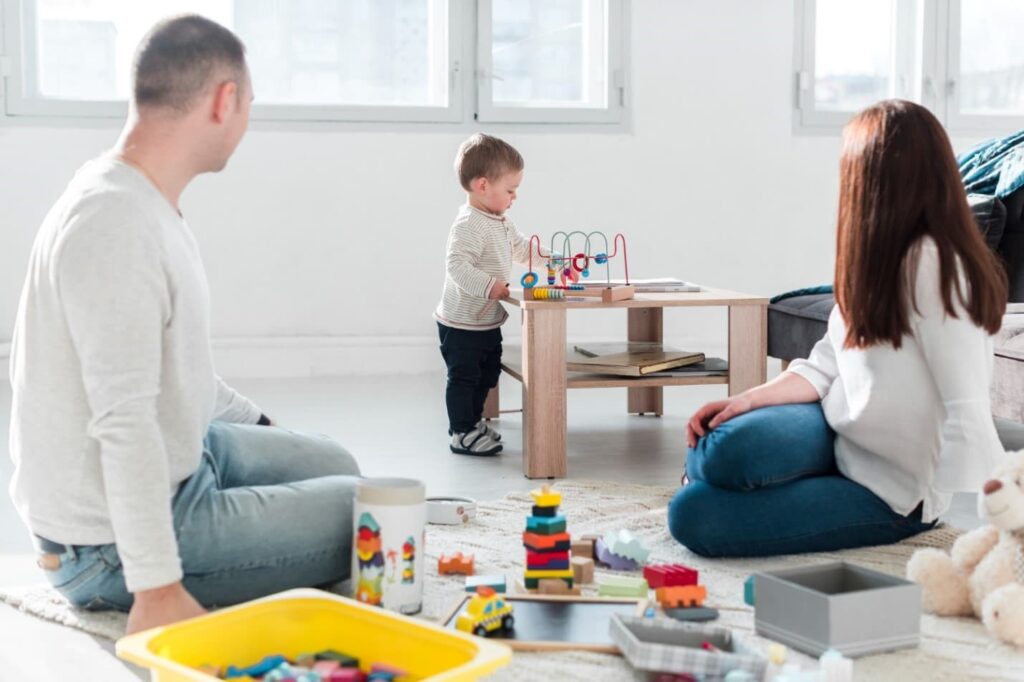In the intricate mosaic of child development, play is a foundational thread, intricately connecting the strands of social, emotional, cognitive, and physical growth. Beyond mere amusement, play emerges as a powerful catalyst for nurturing creativity in children. This article embarks on a journey to explore the nuanced and multifaceted role that play plays in sculpting the developmental pathways of young minds.
The Nature of Play
Play is often misconstrued as a frivolous activity meant solely for enjoyment. However, its significance extends far beyond entertainment. Play emerges as an indispensable mechanism in child development, intricately woven by developmental psychologists. It transforms into a vibrant arena where cognitive skills, such as problem-solving and decision-making, are meticulously refined through the rich tapestry of exploration and experimentation. Children actively assimilate vital life lessons by participating in imaginative play, constructing intricate structures with building blocks, or engaging in cooperative games.
Beyond its cognitive accolades, play emerges as a cornerstone within the elaborate tapestry of a child’s physical development. Far from being mere entertainment, active play serves as a catalyst, sculpting crucial gross motor skills — fueling the propulsion of sprinting, the grace of leaping, and the ascent of climbing — laying the bedrock for physical prowess in a uniquely enriching manner. Simultaneously, in more concentrated endeavors like constructing with small blocks or immersing in arts and crafts, play refines the finer motor skills indispensable for the delicate acts of writing and drawing.
Furthermore, play actively contributes to the development of sensory perception. Whether it’s the tactile sensations experienced when playing with various textures or the auditory delights of music and interactive play, children’s senses are consistently stimulated during game, fostering a rich sensory foundation.
Play and the Development of Cognitive Skills
Play emerges as the masterstroke in the intricate tapestry of a child’s cognitive development. It serves as an activity and the foundational brushstroke for academic prowess, allowing children to sculpt vital mental capacities — memory, attention, and language. Consider pretend play, where children, like miniature directors, weave scenarios demanding the orchestration of recall, communication with peers, and decision-making. This dynamic process mirrors the intricate cognitive demands encountered in the classroom, and painting is a vibrant palette for forming young minds. This early mental groundwork lays the foundation for more complex learning tasks as children progress through their educational journey.
Amidst the kaleidoscope of play activities, specific types have earned distinction for their unique impact on cognitive development. Constructive play, where children manipulate objects to build or create, acts as a catalyst for enhancing spatial skills and problem-solving acumen. Conversely, the realm of make-believe or imaginative play fosters creativity and serves as a crucible for developing narrative and symbolic thinking. For parents and educators, delving into the cognitive intricacies of the game enables purposeful engagement, ensuring that each playtime unfolds into an exceptionally enriching and educational experience. For a deeper exploration of the mental benefits of play, consider, for instance, platforms like https://playfortunefor.fun.
Social and Emotional Growth Through Play

Beyond the cognitive horizon, play emerges as a dynamic orchestrator, intricately sculpting the complex contours of social and emotional growth. As children engage in play with their peers, they embark on a transformative odyssey, mastering the art of cooperation, negotiation, and conflict resolution and transcending into the realm of adopting various roles. This intricate dance within the realm of play grants them a profound understanding of diverse perspectives, fostering a tapestry of empathy that transcends the ordinary.
Moreover, the play unfolds as a canvas for emotional expression and regulation. Whether through the theatrics of dramatic play, where myriad scenarios are enacted, or in the collaborative symphony of cooperative play, emotions find both exploration and equilibrium in a secure and supportive environment. This nurturing of emotional resilience during play becomes a precious asset, fortifying children to face the challenges and setbacks they may encounter.
Play as a Gateway to Creativity
Creativity, often lauded as a cornerstone of human ingenuity, has its origins deeply embedded in play. As children dive into the realms of open-ended play activities, they embark on a journey through their imaginations, sculpting a creative mindset that transcends the ordinary. Their active involvement in drawing, painting, building, or inventing during play contributes to innovative thinking and becomes a canvas where problem-solving skills are artistically honed. In this dynamic play space, children become architects of their imaginative worlds, cultivating a unique blend of creativity and analytical prowess.
Play fosters divergent thinking, the ability to generate many ideas, and provides a platform for experimentation without the fear of failure. This freedom to explore and create fosters a lifelong love for learning and a willingness to approach challenges with a creative mindset. As society increasingly values innovation, the role of play in cultivating creative thinking becomes even more critical.
Cultivating a Playful Learning Environment
Play emerges as a dynamic force that significantly shapes a child’s developmental trajectory. Its diverse benefits, from cognitive prowess to social and emotional growth, extend to nurturing creativity and fostering a genuine love for learning. Advocating for the pivotal role of play, let us actively contribute to creating environments where children can freely explore, imagine, and learn. In doing so, we lay the foundation for a future generation characterized by resilience, creativity, and a lifelong passion for learning. To see a unique perspective on the game and its impact on creativity, visit https://playfortunefor.fun/games/bonus-buy-slots.
In the intricate tapestry of a child’s development, recognizing the indispensable role of play becomes a clarion call for parents, educators, and caregivers. It compels them to endorse and ardently champion play-based learning, weaving it seamlessly into formal education settings. This distinctive approach goes beyond conventional methods, creating a vibrant and dynamic learning environment. Providing ample avenues for unstructured play, it orchestrates a harmonious blend that addresses cognitive, social, emotional, and creative dimensions, sculpting a unique and well-rounded developmental journey for each child.